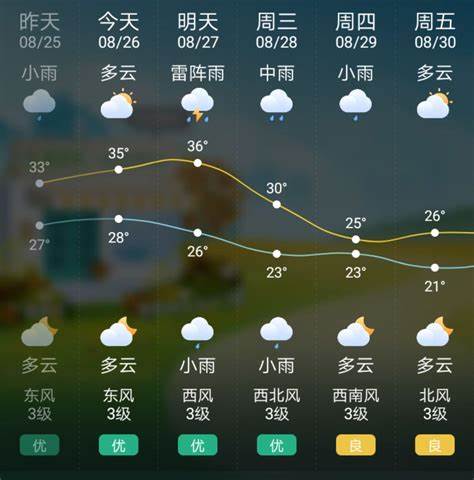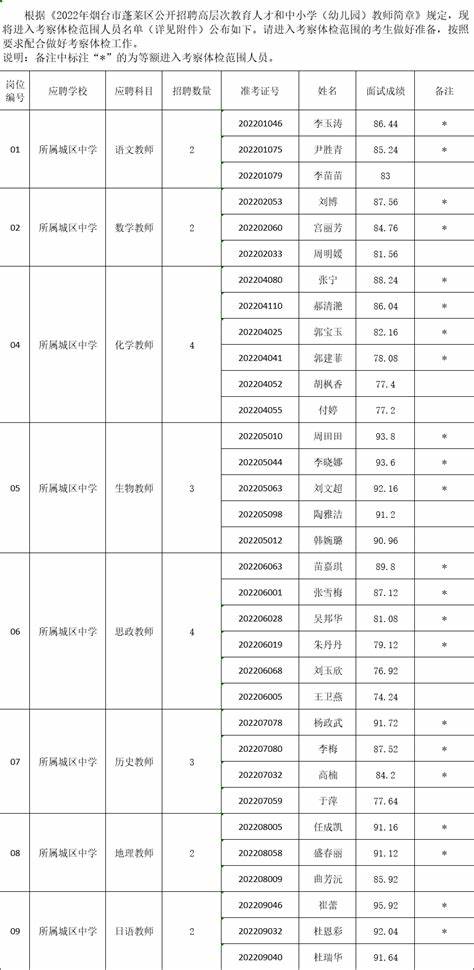The relationship between smart tourism and tourism management
发布:宓孟杨
- ∩0∩What is the relationship between smart tourism and tourism?
- ╯▂╰What are the new tourism formats?
- ●ω●What is smart tourism
- >﹏<What is the management automation of smart tourism?
The "Guide" aims to promote the application of smart tourism scenarios, consolidate the construction of smart tourism with scenario construction, empower the tourism industry with information technology, improve industrial efficiency, reshape the tourism experience, reconstruct the industrial pattern, and give the tourism industry new vitality, promote the transformation and upgrading of the tourism industry, and achieve high-quality development.
Smart tourism scenarios are compre hensive and integrated application results jointly shaped by modern information technologies such as 5G, big data, cloud computing, Internet of Things, artificial intelligence, virtual reality, and augmented reality in the field of tourism. Tourism activities in the digital economy era mainly occur in smart tourism scenarios. Smart tourism scenes are the basic space and elements for tourists to complete the tourism process. They are the digital connection between tourists and tourism resources. They are a new experience space created by information technology for tourists. In the construction of smart tourism systems, smart tourism scenes are the parts that most directly reach tourists, such as information push, electronic ticket booking, smart tour guides, convenient park entry, etc. Therefore, smart tourism scenes are the construction areas that have the closest relationship with tourists and can most directly improve tourist experience and satisfaction.
From the perspective of tourists’ needs, the construction of smart tourism scenes is user-oriented and fully considers the actual scenarios faced by tourists, which is an important starting point for the development of smart tourism. For tourism companies and tourism management departments, starting from the construction of smart tourism scenes, enriching tourists’ experience with different scene content and creating a deep sense of participation can better meet the personalized needs of tourists at various stages such as before, during and after the tour. It can provide tourists with efficient and accurate services to further stimulate tourists' consumption vitality. It can also better manage and serve the industry and promote the healthy and orderly development of the industry.
Douxiangyou seizes the development opportunity of smart tourism and takes the lead in laying out the smart tourism industry. The smart shared travel aid cabinet can provide tourists with a variety of smart travel aid products to meet tourists' needs for convenient travel and help the smart transformation and upgrading of scenic spots.

Rural tourism refers to tourism activities that occur in rural areas. Its unique feature is that it allows tourists to experience the pastoral scenery, folk culture and farm life of the countryside. In recent years, with the acceleration of urbanization, more and more people are eager to return to nature and feel the tranquility and innocence of the countryside. Rural tourism not only provides tourists with opportunities to get close to nature, but also promotes the development of rural economy, promotes the sales of agricultural products and the spre ad of rural culture. For example, farmhouse is a typical form of rural tourism. Visitors can taste authentic food, participate in agricultural activities, and experience rural life in depth at the farmhouse.
Smart tourism uses advanced information technology, such as big data, cloud computing, Internet of Things, etc., to improve the quality and efficiency of tourism services. Through smart tourism, tourists can more conveniently obtain travel information, plan their itinerary, and enjoy personalized travel services. At the same time, smart tourism also helps tourism management departments better monitor the operation status of tourist attractions and ensure the safety of tourists. For example, the electronic tour guide system launched by some tourist attractions can help tourists understand the various attractions in the scenic spot in detail through intelligent audio guide, and improve the tourist experience.
Ecotourism emphasizes the conduct of tourism activities on the pre mise of protecting the natural environment, aiming to achieve sustainable development of the tourism industry. Ecotourism focuses on tourists’ understanding and respect for the natural environment, and encourages tourists to reduce negative impacts on the environment during their tours. This form of tourism usually involves areas with good natural ecological environment such as nature reserves and forest parks. For example, a wildlife observation tour is a type of eco-tourism. Under the leadership of a professional tour guide, tourists can safely observe the living habits of wild animals and experience the mysteries of nature.
Self-driving travel refers to a travel method in which tourists drive to their destinations by themselves and plan their own itinerary. Self-driving tours give tourists great freedom, and they can flexibly adjust their travel plans according to their own interests and time. With the increase in car penetration and the improvement of road transportation facilities, self-driving travel is becoming more and more popular among people. During self-driving tours, tourists can deeply experience the local customs and customs along the way and enjoy the fun of driving.
These new tourism formats not only enrich the diversity of tourism products and meet the personalized needs of different tourists, but also inject new vitality into the innovative development of the tourism industry.
Smart tourism is the use of new technologies to use all kinds of information.
Smart tourism refers to the use of next-generation information network technology and equipment to fully, accurately and timely perceive and use all kinds of tourism information, thereby realizing intelligent tourism services, tourism management, tourism marketing, and tourism experience. ization and promote the transformation and upgrading of the tourism industry into a compre hensive and integrated one.
Smart tourism is characterized by digitization, networking, and intelligence. It introduces technologies such as the Internet of Things, cloud computing, and 5G into tourism experience, industry development, and management to meet the growing material and cultural needs of the people. , Promote the modernization of the tourism governance system and governance capabilities.
The intelligent development of the tourism industry is definitely not a simple transfer of scientific and technological achievements. We must achieve an organic combination of industry and technology so that our technology can promote and lead Industry development can solve the core links, pain points and difficulties existing in the industry. There is no model that can be used for reference or replication in the construction of smart tourism. Every step is innovation.
All localities should combine their actual conditions and provide guarantees from the aspects of policies, funds, mechanisms and talents to support the construction of smart tourism. The construction of smart tourism requires the competent authorities and enterprises to reach an agreement at the cognitive level to achieve the effectiveness of technology platforms and products, and then form a healthy development model that combines industry, academia and research to promote the development of smart tourism.
Traditional tourism management may require a lot of manual operations and paper document processing, while the management automation of smart tourism improves efficiency, reduces costs, and provides better services by introducing digital, automated and intelligent technologies. Good user experience.
Specifically, the management automation of smart tourism can include the following applications:
1. Reservation and ordering system automation: through online platforms or mobile applications, travel agencies, Hotels, airlines and other companies can implement online booking and ordering services, reducing manual operations and intermediate links and improving booking efficiency.
2. Data analysis and decision support system: Through data collection, analysis and mining, it provides relevant data and insights to tourism managers to help them make more informed decisions. For example, analyze user pre ferences and behavior patterns, and optimize product design and marketing strategies.
3. Automated tour guide and navigation system: Utilize technologies such as smartphones and navigation equipment to provide tourists with real-time tour guide and navigation services, helping them understand attractions more conveniently, plan their itinerary, and provide Personalized recommendations and advice.
4. Electronic payment and settlement system: Provide a convenient and safe electronic payment method, allowing tourists to pay tickets, hotel fees, etc. online, reducing cash transactions and improving payment efficiency and security.
5. Tourism resource management system: Use information technology to manage and dispatch tourism resources, including the booking, dispatching and monitoring of vehicles, ships, tourist facilities and other resources, to improve resource utilization and service quality.
Through the management automation of smart tourism, the tourism industry can operate more efficiently, provide more convenient and personalized services, enhance the tourism experience, and bring better operating benefits to tourism companies and managers. .
以上就是关于The relationship between smart tourism and tourism management的全部内容,希望能够帮到您。
版权声明:本文来自用户投稿,不代表【大桂阳分类信息】立场,本平台所发表的文章、图片属于原权利人所有,因客观原因,或会存在不当使用的情况,非恶意侵犯原权利人相关权益,敬请相关权利人谅解并与我们联系,我们将及时处理,共同维护良好的网络创作环境。
大家都在看
-

佛山2023年2月份天气预报实况
年2月天气普遍是晴天。北京2023年2月1天气信息是白天最高温度为10摄氏度,夜间最低温度为-3摄氏度,晴,西南风转东北风(一二级),北京本月白天平均温度为5.8度,夜间平均温度
-

2020年2月3日天气预报
气温预报白天最高气温:15℃夜间最低气温:5℃天气状况白天:晴到多云夜间:多云转阴风力信息白天:微风,风力1-2级夜间:微风,风力1-2级
-

2018年东北地区全年天气预测
齐齐哈尔2018年4月1日到5月1日天气查询齐齐哈尔2019年4月天气预报日期最高气温℃最低气温℃天气风向风力//>2019-04-015-6多云转晴,偏北风2019-04-027-3多云,西北风2019-04-03
-

2024年北京全年天气预报表
很抱歉,由于我的功能限,我无法提供2024年全年的详细天气预报表。天气预报通常由专业的气象机构根据历史数据、气候模式和实时监测数据来预测,并且往往需要每天更新。如果您
-

2020中心城区教师招聘公告
沙教师考试公告了吗2020已经宣布了。2022年3月湖南教师招聘已一一发布为了让考生更方便的了解湖南教师招聘信息,湖南中工教育整理了2022年3月湖南教师招聘信息汇总,供大家
-

荣耀手机怎么在桌面上添加天气
荣耀手机天气怎么设置到桌面在荣耀手机上设置显示时间和天气的步骤如下:1首先确保您的荣耀手机运行的是MagicUI4.0作系统,并安装了最新版本的天气应用程序(版本.1)。V2.1.7)。
-

未来15日天气预报2020
首先,让我们来看看未来一周的天气预报。从7月19日开始,武汉的天气将转为阴天,虽然暂时还见不到太阳,但至少不再下雨。因此,预计武汉的雨还将续大约一周时间,之后天气
-

2020年12月份教师招聘
月份。教师招聘的公告一般由招聘单位负责发布,发布时间因地区和招聘类型不同而有所差异。招聘岗位对专业有严格要求,
-

张家港教师招聘2022最新
张家港的教师考试到底怎么考,难吗不错!如果仔细测试的话,肯定可以的。江苏教师招聘的笔试具体考什么江苏招聘教
-

溧水114招聘信息网
溧水才网【网】58同城招聘求职频道南京溧水交通公共客运有限公司2023年公开招聘2023年城建集团校车服务公司公开招聘工作员公告2023年南京溧水产业集团下属昱达金属公
